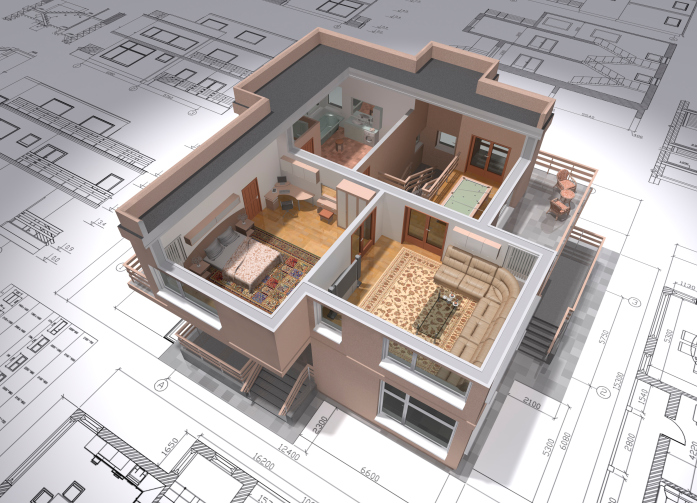Efficient air conditioning is effective air conditioning. Most A/C inefficiency isn’t a result of over-cooling the house to keep occupants shivering all summer. It’s actually lost cooling that provides little to no comfort benefit, yet still substantially boosts your monthly utility bill.
Recent statistics tell the story of increasing dependence on air conditioning, particular in our region of the country. The number of air conditioned homes has increased dramatically. Here in the South, 96 percent of all households now use air conditioning of some sort and about 80 percent of those are central A/C systems. While air conditioners use 5 percent of all electricity produced in the U.S. nationwide on an annual basis, in hot climates like the New Orleans area, that figure soars to over 25 percent during peak hours in summer. Air conditioning is one of the principle reasons Louisiana frequently scores the highest average residential electricity consumption of any state in the nation.
With numbers like that, it’s clear that any efforts you make to maintain efficient air conditioning can have a big effect — not only on monthly household operating costs, but also on conserving overall energy resources. In addition, many of the same strategies to reduce air conditioning expenses also contribute to a more comfortable home. Efficient air conditioning doesn’t have to mean to upgrading to a new unit, though in some cases making that switch is long overdue. It can be simple steps that help your air conditioner do its job more effectively.
Here are some of the ways you can make efficient air conditioning part of your household routine and reap benefits in both cost control and comfort.
Program Your Cooling
If you’re still relying on an old-school manual A/C thermostat, upgrade to a digital programmable thermostat for more efficient air conditioning and free yourself from the chore of constant adjustments, too. Programmable thermostats make temperature adjustments automatically, on a schedule that fits your daily activities and household occupancy levels. These units come out of the box with pre-programmable schedules. All you do is input the specific times of day and the temperatures you prefer.
An intelligent programmable thermostat executes temperature changes gradually, reducing temperature swings for the most efficient air conditioning, as well as the most comfortable environment. Energy savings from properly utilizing a digital programmable thermostat can pay for the unit after the first year.
Other available options with programmable thermostats now include WiFi connectivity that allows you to monitor and adjust your indoor temperatures from your smartphone or computer anywhere in the world.
During summer, use 78 degrees as the benchmark programmed temperature when the home is occupied and the household is active. Program higher temperatures during hours of the day when nobody’s home or during overnight hours when occupants are sleeping. When you're heading out of town for a summer vacation, use the convenient "vacation" option to maintain a higher, steady temperature inside the house around the clock while you’re away.
Reduce Air Leakage
If your home is newly constructed, it probably leaks a little. If it’s more than 20 years old, it almost certainly leaks a lot. Structural cracks and gaps allow cool air to flow out of the home and heat energy to infiltrate. During summer, air exchange with the outdoors degrades efficient air conditioning, raises operating costs and makes the home less cool and comfortable.
Finding and sealing air leaks isn’t rocket science and doesn’t cost much as a DIY project. Apply caulking or weatherstripping strategically to these areas:
- Outdoors, look for openings where plumbing pipes or electrical conduits enter the house. Fill the gaps with caulking or spray foam insulation. Anywhere exterior walls or siding don’t intersect properly, seal the gap. Also caulk along the joint where the exterior wall contacts the foundation.
- Inside, use caulking to fill cracks along the joint between intersecting walls and the long joint between the baseboard of exterior walls and the floor. Look for gaps in the ceiling, too, particularly cracks around the joint with the walls and openings around light fixtures that recess into the attic.
- Replace worn weatherstripping in door frames and along window sashes to close the gap between moveable surfaces. The big opening beneath doors also leaks a lot of air, so replace worn-out door sweeps. Don’t forget to weatherstrip the attic access hatch or pull-down stairs as well.
Make Professional and DIY Maintenance a Habit
Efficient air conditioning requires proper system upkeep. An annual A/C inspection and tune-up by a qualified HVAC technician is the baseline procedure to make sure your system’s operating at optimal efficiency and produces cool comfort dependably, even during the worst heat wave of the summer. Schedule annual professional maintenance at the outset of the cooling season, if possible. Incipient problems often make themselves known at seasonal start-up after the system’s been idle for months.
In addition to annual professional maintenance by your local HVAC contractor, there are just a few DIY items you can take care of yourself:
- Change the air filter monthly. It's the least time-consuming chore that can be accomplished by almost anyone in a few moments. Keeping a clean air filter in the system is one of the single most critical maintenance procedures you can do to ensure efficient air conditioning and cooling performance all summer long. For the best balance of system airflow and indoor air quality, choose a pleated cotton or fabric air filter labeled with a minimum efficiency reporting value (MERV) rating between 4 and 8.
- Maintain the outdoor unit. The outside half of a central air conditioner needs proper airflow into the coil vents. Here in Louisiana, vegetation grows fast and may encroach upon the outdoor unit’s space. Cut back any plants or weeds to allow at least two feet of clear space on all sides. Also, keep the upper fan grille free of leaves, limbs and twigs.
Upgrade in Time
If your existing air conditioner is more than 10 years old, it’s a good time to start at least thinking about an A/C upgrade to a unit with greater air conditioner efficiency. Several factors may drive that decision:
- The average expected service life of a central air conditioner is 12 to 15 years. That’s the time span when it can be expected to fail entirely and require replacement at some point. However, by the time a unit is 10 years old, it probably no longer represents the most efficient air conditioning option available and may be depriving you of energy savings, not to mention the advances in A/C technology since your existing unit came off the assembly line.
- Sudden failure of certain major components like the compressor would be too expensive to justify replacing at this point. Should that happen, upgrading to a new system will be an unexpected snap decision, perhaps at the least convenient or economically desirable time.
- If your air conditioner has been on the job for more than a decade, simply upgrading to a new unit will deliver substantially greater efficiency and start leaving money in your pocket that was previously devoted to electricity bills. A standard unit manufactured in the 1990s or early 2000s probably came with a seasonal energy efficiency ratio (SEER) as low as 10. Today’s new Energy Star-rated air conditioners offer SEER ratings above 14 and deliver savings, at minimum, of 30 percent over your existing unit. High-efficiency A/C with SEER ratings of 20 or above can mean even greater savings, though they come with a substantially higher upfront purchase price.
- Many Energy Star-rated air conditioners also offer enhanced comfort perks not found on an older A/C, such as variable speed blowers that eliminate temperature swings and keep coolness consistent, two-stage compressors that monitor the cooling load and adjust compressor output for maximum performance, and a fan-delay circuit that purges residual cool air out of the ducts and into living spaces after the compressor cycles off.
For more information on efficient air conditioning in your home this summer, check out Bryans United Air Conditioning's air conditioning solutions, or call 504-208-2071.
Image via Thinkstock


